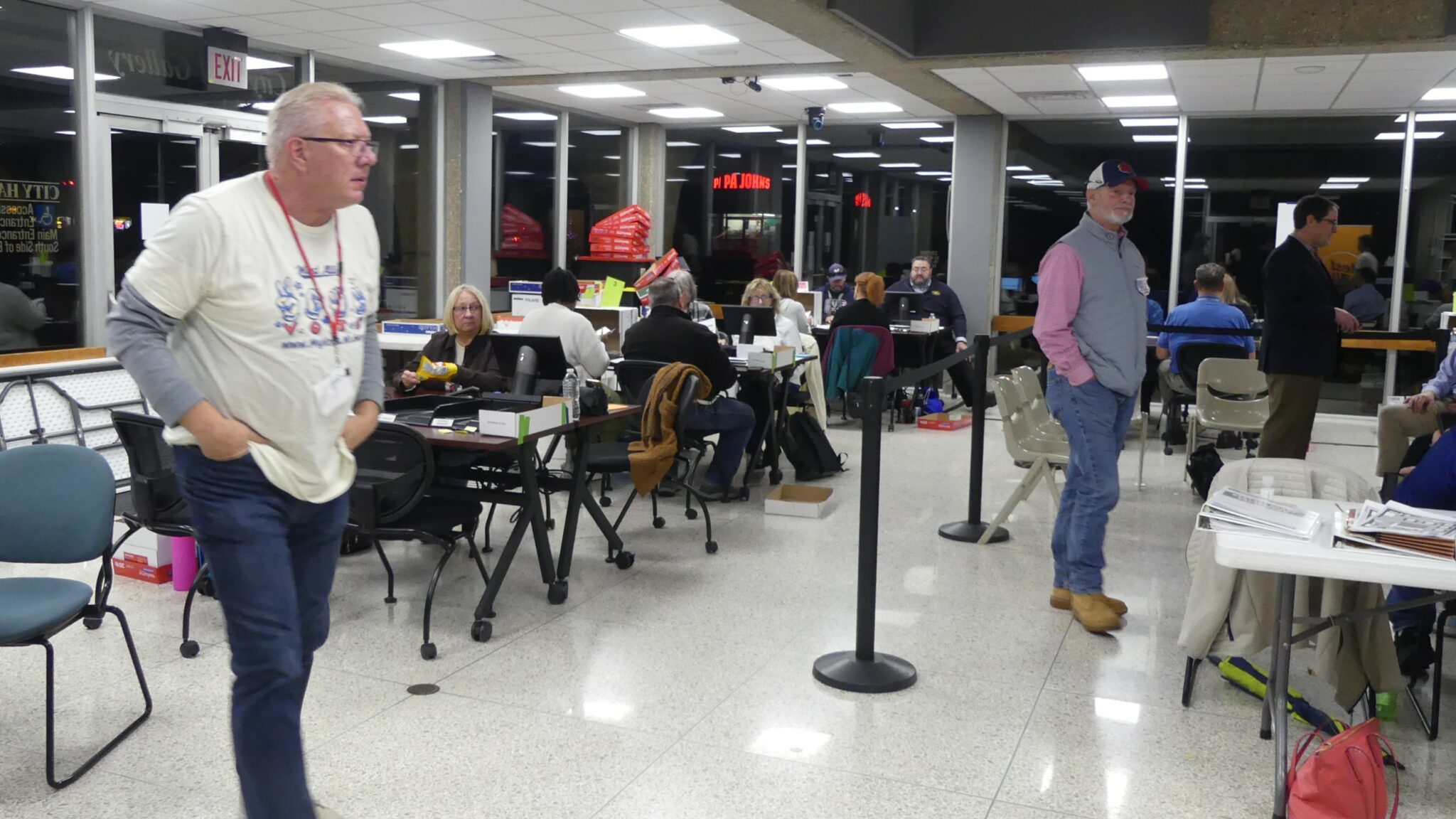Rep. Adam Neylon criticized the Wisconsin Elections Commission for not engaging with lawmakers more on a proposed rule laying out standards for election observers, calling it “insulting.”
Appearing Monday before the Joint Committee for Review of Administrative Rules, GOP Commissioner Don Millis testified in support of the rules alongside Dem Chair Ann Jacobs. He noted election officials have “sweeping authority” to control polling places and remove observers under state law, and the rule “seeks to provide safe harbors for observers so that reasonable actions are not considered to be removable offenses.”
>> WisPolitics is now on the State Affairs network. Get custom keyword notifications, bill tracking and all WisPolitics content. Get the app or access via desktop.
Millis said the Legislature could make state law related to election observers more specific, saying he personally would be more comfortable if the law was more detailed about how different situations involving observers should be handled.
“But I was appointed to the commission, I’m not elected to the Legislature. So we try to do the best to fill in the rules,” Millis said.
Neylon, vice chair of the Joint Committee for Review of Administrative Rules, criticized the commission for not including lawmakers on the 24-member advisory committee involved in the rulemaking process.
“I feel a little bit like you didn’t even try here, you didn’t even try to do legislation. You’re choosing a rule and then telling us … ‘We can’t even work with you guys, this is what we got to do,’ and I find that a little bit insulting,” Neylon, R-Pewaukee, said.
Millis said he wasn’t aware of an advisory committee ever involving legislators.
“No slight was intended. But you know, if there’s a fault, I suppose, for not making an overture to legislators, it would be me,” he added.
Sen. Kelda Roys, D-Madison, said she was “confused” and “mystified” by Neylon’s comments, noting lawmakers don’t typically serve on advisory committees. She argued the rules would help build trust in elections.
“Every very polling place is different, every municipality is different, there has to be some room for that,” Roys said. “But when you don’t have a written guide in place that you can go back and point to, that arbitrary feeling, whether it’s legitimate or not, can really breed distrust. And I think, you know, our democracy needs trust and confidence in order to function, so this, I think, moves us really in the right direction on doing that.”
Millis and Jacobs made a similar pitch in support of the rules during an appearance before the Assembly Campaigns and Elections Committee earlier this year. But that committee voted 5-2 along party lines last month to recommend JCRAR nix the package that has been in the works for more than two years. The proposed standards include things like spelling out when events at a polling site can be recorded, or what observers can do when ballots are cast in a care facility.
Republicans have raised concerns the rules lack penalties for local officials who fail to follow them. Representatives of the state Elections Commission have said they don’t have the authority to propose penalties for local elections officials as part of the package, and that would have to be done through legislation.
During the Assembly committee vote last month, Rep. Scott Krug, R-Nekoosa, said he was working on legislation to implement the rule changes, along with penalties for local election officials.
JCRAR can approve, suspend or modify the package. Chair Steve Nass, R-Whitewater, said the committee will make a decision by the end of the week.
Also at Monday’s meeting, Commissioner Bob Spindell spoke against the rule, saying it is “pretty good” but more issues need to be addressed before it can be approved. Spindell was the only member of the Elections Commission to oppose the rule when it was approved 5-1 in September.
He said in particular, the rule should be updated to ensure election observers can record a conversation with a chief clerk or election judge, particularly if the observer is asked to leave.
Rep. Lee Snodgrass, D-Appleton, called Spindell an “unreliable witness” on election security issues, noting he was one of 10 Republicans who served as fake electors for Donald Trump in 2020 despite Trump’s then-loss to Joe Biden.
“You’ve conceded that you tried to overturn the legal results of the 2020 election, so the fact that you’re testifying is just beyond the pale,” Snodgrass said.



